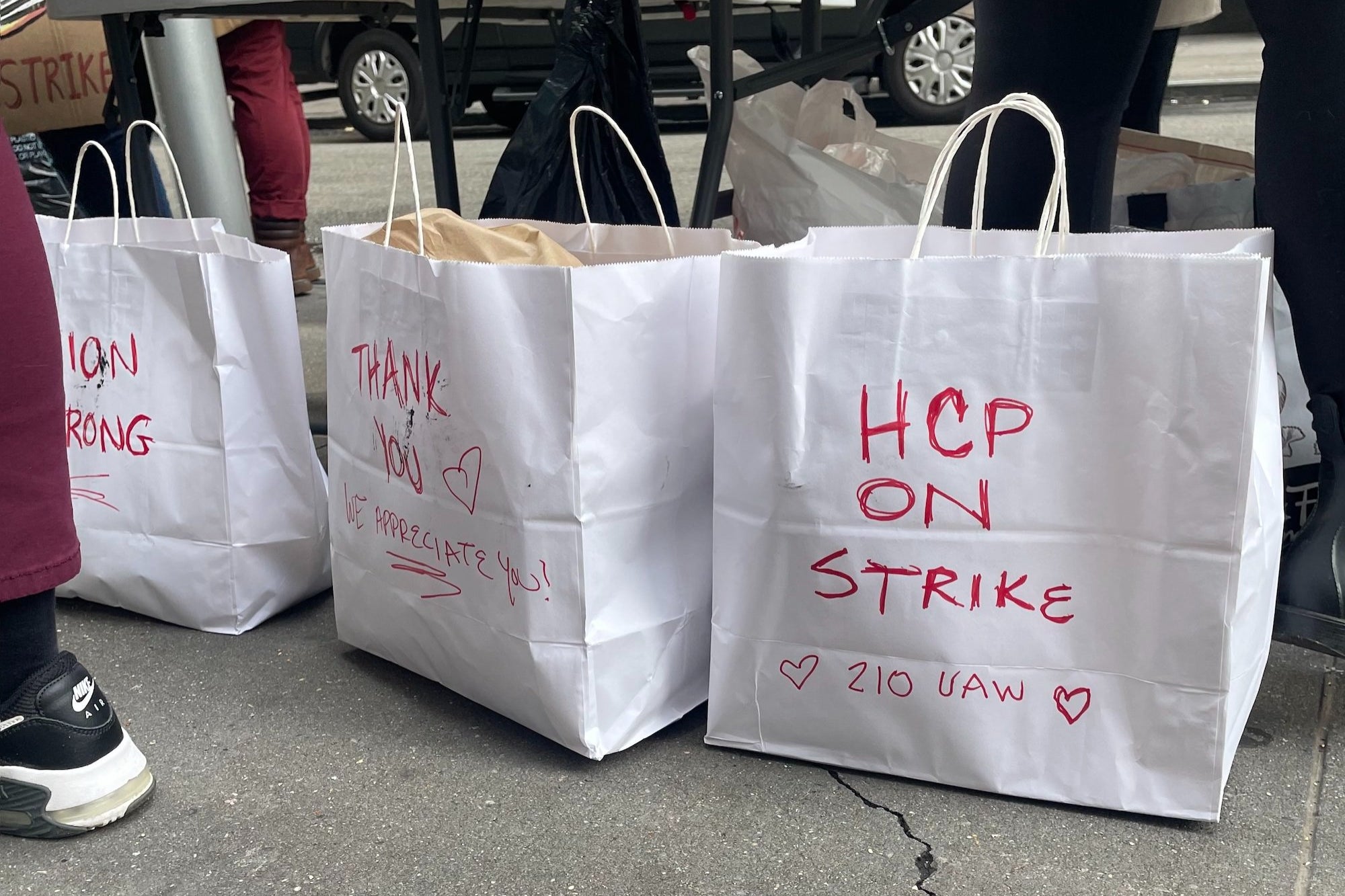'This Is the Way It's Always Been': HarperCollins Workers Fight to End Historic Cycle of Unfair WagesAn employee on the HarperCollins picket lines shares what the experience has been like – and why the problems strikers are addressing are universal to the entire publishing industry.

When Rachel Kambury, 31, started working at publishing house Hachette six years ago, her manager sat her down and said, "I'm so happy you're here."
She was flattered. "I was certainly happy to be there," Kambury recalls. "But then he said, 'You actually beat out 400 other people for this job.'"
At the time Kambury was honored and felt validated that she was chosen instead of hundreds of others for one coveted spot. Though the role was her dream job, the salary was less-than-desirable. It was 2016, and Kambury was earning around $33,000 — beforetaxes.
"I quickly came to this realization of,Oh, that's how they justify these salaries, because there were 400 people who were ready and willing to take my spot," she says. "They know that and take it for granted."
Kambury has since moved on to otherpublishingcompanies; she's currently an associate editor at HarperCollins. She's now well into her career, has worked on dozens of bestsellers and has bid on books for up to $500,000 — and yet, "I'm only making about $13 an hour after taxes," she says.
Kambury is one of the hundreds of unionized HarperCollins employees currently picketing forfair payand better working standards. Kambury says that the strike, which started on November 10, will continue until the employees negotiate a fair contract. The union represents about 250 employees, who have been working without a contract since April, according to theNew York Times.
Day 2: Picketing in the rain. Thank you to everyone who cheered, honked, and donated food to keep us going today!#hcponstrikepic.twitter.com/YmtMC9V9Gw
— Erika DiPasquale (@ErDiPasquale)November 11, 2022
Related:3 Lessons Employers Can Learn From the 'Great Unionization'
The movement has garnered support from others in the publishing industry,world-renowned authorsand online supporters voicing their solidarity. The widespread attention has brought to light, as Kambury points out, that it's not just HarperCollins — it's pretty muchallof publishing.
"I would call it a combination of hazing and the process of elimination," Kambury says. "This goes for all of the major publishers and some of the smaller ones — they've built their business over the years more and more on the exploitation of labor. They take passionate kids right out of college as much as possible."
Kambury isn't referring to "hazing" in the traditional sense, but rather subtle manipulation by those in power who reinforce the problematic systems that have made publishing a cutthroat industry for decades.
"You hear things like, 'This is the way it's always been,' and, 'When I started I was at $14,000 a year,'" she says. "So there's this sort of top-down treatment of young employees where it's like, 'You should be grateful to be here. Don't complain about the salary. Don't care about the workload.'"
Kambury points out another key problem in the publishing industry today: The generational difference wherein higher-ups who have been in the industry for decades will now "pat themselves on the back" for approving overtime or grantingpaid time off. Kambury says she's been "lucky" enough to have managers who approve her overtime, but she has friends in the industry whose managers do not even let them log it — but that doesn't mean they aren't working 10-15 extra hours a week, because Kambury says that's a given.
Day 3 of picket line!@hcpunion#hcponstrikepic.twitter.com/Pj30lbOTwG
— Courtney Stevenson (@courtney_ps)November 14, 2022
The strikers are asking for three major changes. First, a raise in base salaries and then an adjustment to certain ranges after that to ensure there isn't wage compression. Second, a commitment to codifying language in the contract to essentially make sure that the company's commitment to diversity isn't just words — that it follows through on what those words mean.
And third, stronger union protections.
Related:An Apple Store in Maryland Is the First to Unionize in the U.S.: 'We Did It Towson!'
When they started this process back in December 2021, the union stewards put together about six pages of proposals Kambury says were "very doable, nothing crazy. And now we're down to three — not even pages — we're just down to three demands."
What frustrates Kambury and so many others currently on the picket line is that they believe what they're asking for is relatively standard. However, because the publishing industry has been built on systems of low-paid labor, it's more of an uphill battle than one might expect. "The company has made it very, very clear that they consider us expendable, disposable and replaceable," Kambury says. "And that's an incredibly horrible feeling."
Despite the circumstances, Kambury says the energy on the picket line — and online — is "electric and inspiring."
"If I could bottle it and turn it into a perfume, I would," she says. "I would wear it every day. It's just so comforting."
The strikers have been picketing since November 10 and intend to press on, rain or shine. HarperCollins did not immediately respond to request for comment.












